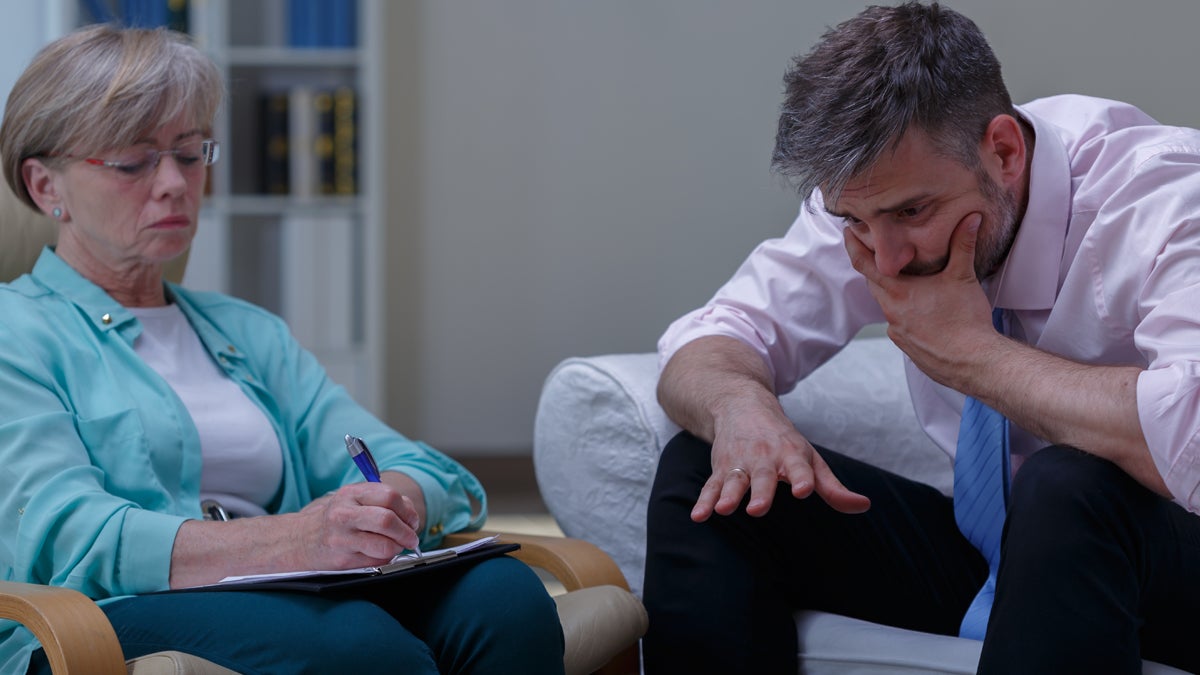American College of Physicians touting therapy as effective alternative to meds for depression
 Photo via ShutterStock) " title="shutterstock_300610673" width="1" height="1"/>
Photo via ShutterStock) " title="shutterstock_300610673" width="1" height="1"/>
(Photo via ShutterStock)
By completing a meta-analysis of several studies done over 25 years, the American College of Physicians has found cognitive behavioral therapy is just as effective in treating major depression as medications. It’s urging doctors to give therapy a chance.
CBT is a goal-oriented therapy that helps patients develop coping skills and challenge their own negative thinking.
Patients may prefer it to avoid medication side effects such as nausea, dizziness and sleep disruptions. Prozac, a second-generation antidepressant, can also cause coldlike symptoms and headaches.
“We as physicians, we are into prescribing, we understand we can diagnose, we can prescribe and all of that,” said Dr. Tanveer Mir, chair of the college board of regents. “But sometimes we are not as familiar with the other modalities that are available to us.”
She expects the new recommendation will change the way physicians treat major depressive disorder.
“What happens down the road is that this becomes the standard of practice, and then there is more from a physician’s point of view, or a coverage point of view, for us to tell insurance companies that this is something that should be covered by insurance programs,” she said.
With the growth of therapy delivered online, Mir believes CBT will become more widely available, even in remote areas.
The National Institute of Mental Health estimated that nearly 16 million American adults had a major depressive episode in the past year.
WHYY is your source for fact-based, in-depth journalism and information. As a nonprofit organization, we rely on financial support from readers like you. Please give today.

